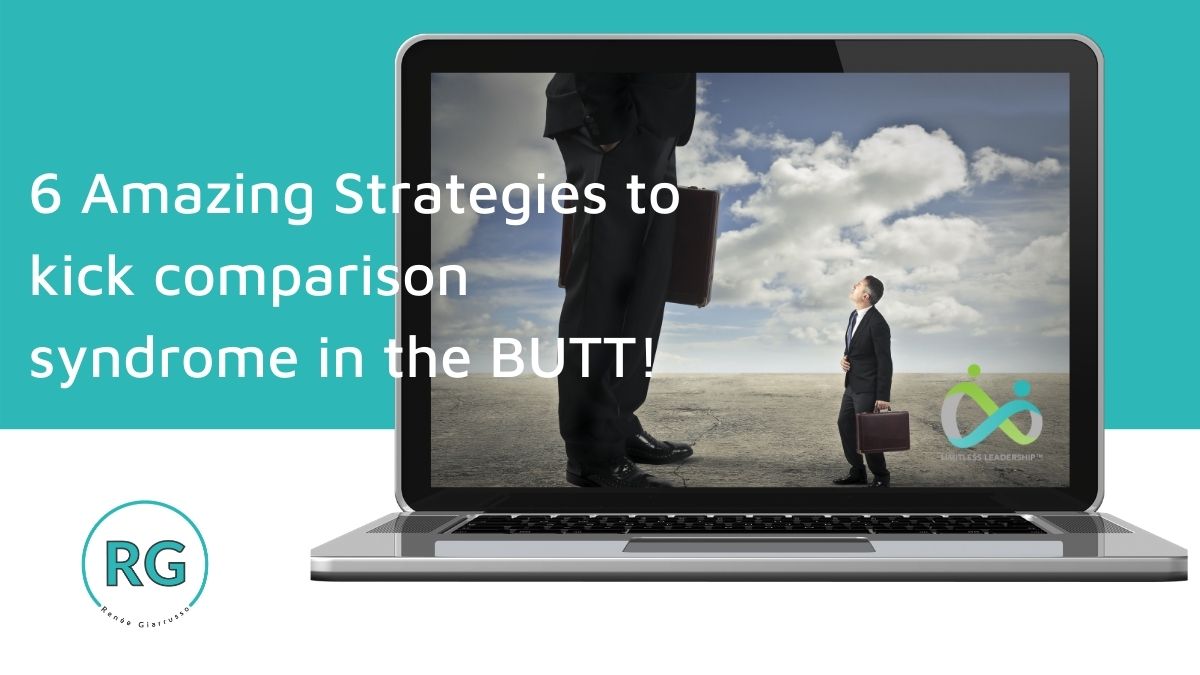On most social media platforms, people are depicted as living their dream life – perfect relationships, endless holidays, picture-perfect plates of food and successful businesses. Social media has become a highlight reel of only the good; it rarely portrays what is truly going on. This can lead to ‘comparison syndrome’, where people compare their own ‘real’ lives with others’ highlight reels – a natural human reaction. If you compare yourself to someone else’s digital presence, you run a high possibility of discounting yourself for reasons that aren’t usually valid.
Social media is a massive contributor to comparison and many other variables that result in us comparing ourselves to work colleagues and even family members.
Comparison can be a killer; it can diminish and dim you as a person.
Many years ago, I remembered preparing a presentation to build a case to start a new division in my corporate life. I had diligently prepared a strong case, had great visuals and was feeling super confident. Another team member presented before me; I learned always, to go first when you can. His presentation was excellent; he had animated visuals and delivered them with such passion and confidence. I remember almost sliding down my chair and wanting to disappear. I was experiencing comparison syndrome, and I hadn’t even presented as yet. I ended up presenting my case and received brilliant feedback and buy-in. This is where I learnt that it was all in my head and that his presentation wasn’t better; it was just different to mine.
Comparisonitis is the compulsion to compare one’s accomplishments to another’s to determine relative importance. When you take a step back and realise that no one is you, this frees you up to live your life for you on your terms. You will stop beating yourself up and appreciate what you have and what you can contribute. When you get to this place, you will feel peace, happiness and liberation as you will free yourself from unrealistic expectations.
Psychologist Leon Festinger developed social comparison theory in 1954, stating that individuals determine their own social and personal worth based on how they stack up against others around them. Subsequent research shows that people who compare themselves to others regularly often experience feelings of guilt, dissatisfaction and sometimes even remorse.
For 14 years, I have worked with leaders and teams to accelerate communication, mindset and leadership. In the early days, I compared myself with others working in a similar space and almost went into overwhelm. I remember at one stage googling that there were 8000 coaches in Australia; this was the day after leaving my corporate job to pursue my own business. It didn’t take long for me to realise I had to differentiate my offer and focus on just being me. I have always reflected on a quote, especially when starting something new or different is “Don’t compare your chapter 1 to someone else’s chapter 20.” If life is a book, we are all living through different chapters at different times. Comparison can eat away at our confidence resulting in our self-worth plummeting. This can affect our mental health and lead to overthinking and stifled creativity, capability and happiness.
Here are 6 key strategies to combat comparisonitis:
Focus on your strengths
Being aware of your capabilities, level of capacity to deliver and level of confidence is vital. Having clarity and conviction in each area can help you focus on the journey ahead and what needs to be done. Know your strengths and where you have used these before to replicate success. Work with others who have complementary strengths and leverage these.
Flip the Script
Our thoughts create our feelings and, therefore, what we action. We need to be conscious of what and how we frame what we tell ourselves. Reframing “I’ll never be to do that like her” to “I’m excited to do this and learn along the way” can change your energy, mindset, and above all, your awareness from what can be, opposed to what can’t.
Adopt a Gift Mindset
The Gift Mindset gets us to look at both challenging and positive experiences and embrace the lessons or “gifts” from these situations. This process can get you out of your head and reinforce your uniqueness. Seeing how far you have come allows you to use these lessons to progress yourself and others forward.
Remember – no one is you
We are all unique in our ways and have our own “essence” that we bring to the world. Even if you are pursuing something similar to someone else, take a step back to identify your qualities, traits and strengths. “What’s your “special sauce?” Know this and make this the focus.
Celebrate others
Jealously can sometimes be a bi-product of comparison and can cause us to come from a place of scarcity instead of a place of abundance. Supporting others and celebrating their success is a great way to get out of your head, build deeper relationships and learn and get support in the process.
Just get started
Perfectionism, procrastination and distraction are behaviours that can hold us back and can have dire consequences for how we feel about ourselves and others and how we think, live and work. Taking action can keep us from the dark side, just make a start and remember you are your biggest critic. Ask yourself: what is the one thing you can do to get started?”
Take the time to reflect on what strategies will work for you, and remember, no one is you!
As always, I’d love to hear what works for you?
Lead to be limitless…


